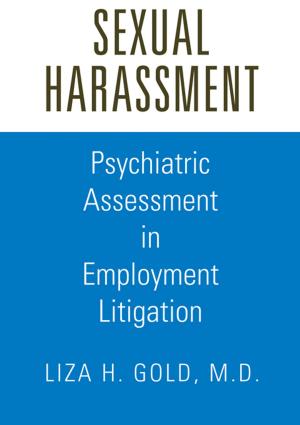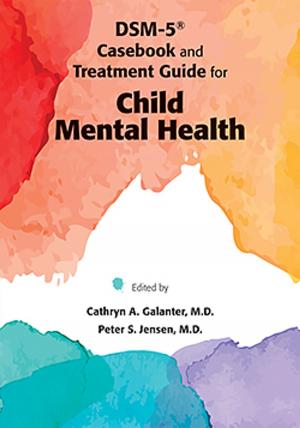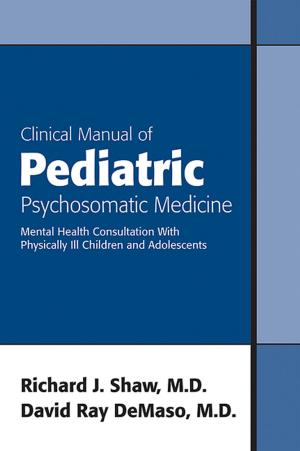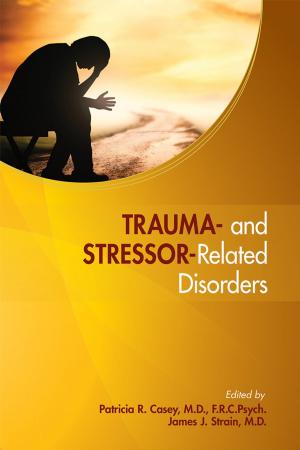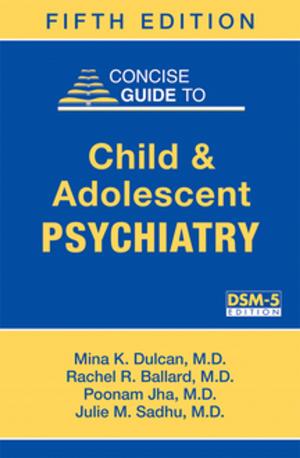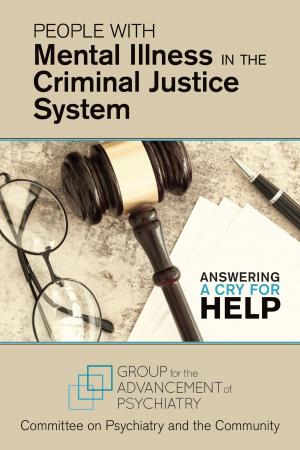Mental Health Issues in Lesbian, Gay, Bisexual, and Transgender Communities
Nonfiction, Health & Well Being, Medical, Specialties, Psychiatry| Author: | ISBN: | 9781585627707 | |
| Publisher: | American Psychiatric Publishing | Publication: | August 13, 2008 |
| Imprint: | American Psychiatric Association Publishing | Language: | English |
| Author: | |
| ISBN: | 9781585627707 |
| Publisher: | American Psychiatric Publishing |
| Publication: | August 13, 2008 |
| Imprint: | American Psychiatric Association Publishing |
| Language: | English |
Over the last three decades, the visibility -- and public acceptance -- of self-identified lesbian women and gay men and bisexual and transgender individuals has increased dramatically, making it more important than ever to understand the dynamics of their relationships.
This timely work, part of Volume 21 in the Review of Psychiatry series, offers compelling facts and insights in a concise yet comprehensive format, bringing together the latest research and clinical practice in this rapidly evolving field. Chapter 1 details normal adolescent development and the extra challenges imposed by the development of a sexual identity that is different from that of most of their peers, including the lack of lesbian, gay, bisexual, and transgender role models.
Chapter 2 presents a rare discussion about theoretical models (managing a concealable stigma, minority stress and resilience, and coping with multiple minority statuses) and empirical data on aging as a stigmatized sexual minority, including the similarities and differences of aging between the sexual minority communities and the heterosexual community and special issues in working with aging ethnic minority gay men, lesbians, and bisexual persons.
Chapter 3 breaks new ground by detailing the expanding role of the psychiatrist or other mental health professional as forensic expert and therapist -- requiring not only an in-depth understanding of lesbian and gay mental health issues, but also the often-daunting task of encouraging and teaching judges and juries to better understand these issues as they relate to discriminatory laws in child custody/visitation, workplace harassment/other discrimination, domestic violence, and immigration/asylum.
Chapter 4 covers both the three types of etiological theories on homosexuality presented in the scientific literature and an historical overview of clinical attitudes toward homosexuality, from early modern theories (Karl Ulrichs, Krafft-Ebing, and Freud) to the present day, reporting on some adverse side effects of sexual conversion treatment that have been either overlooked or ignored in the reparative therapy literature and raising important clinical and ethical concerns.
Chapter 5 examines the public and professional evolution of thinking toward U.S. African race and toward sexual orientation with regard to the reevaluation of the psychiatric diagnosis and treatment of gender identity disorder. Among other topics, the author presents a fascinating discussion of differences between sexual orientation and gender (e.g., anatomical, social, hormonal, psychological, legal, or political), and distinctions between transgenderism and homosexuality, including an illuminating case example.
Thought-provoking and informative, this compact volume will be welcomed by residents, clinicians, and students alike as they continue to look for ways to better differentiate health from pathology and successfully treat these remarkably diverse individuals.
Over the last three decades, the visibility -- and public acceptance -- of self-identified lesbian women and gay men and bisexual and transgender individuals has increased dramatically, making it more important than ever to understand the dynamics of their relationships.
This timely work, part of Volume 21 in the Review of Psychiatry series, offers compelling facts and insights in a concise yet comprehensive format, bringing together the latest research and clinical practice in this rapidly evolving field. Chapter 1 details normal adolescent development and the extra challenges imposed by the development of a sexual identity that is different from that of most of their peers, including the lack of lesbian, gay, bisexual, and transgender role models.
Chapter 2 presents a rare discussion about theoretical models (managing a concealable stigma, minority stress and resilience, and coping with multiple minority statuses) and empirical data on aging as a stigmatized sexual minority, including the similarities and differences of aging between the sexual minority communities and the heterosexual community and special issues in working with aging ethnic minority gay men, lesbians, and bisexual persons.
Chapter 3 breaks new ground by detailing the expanding role of the psychiatrist or other mental health professional as forensic expert and therapist -- requiring not only an in-depth understanding of lesbian and gay mental health issues, but also the often-daunting task of encouraging and teaching judges and juries to better understand these issues as they relate to discriminatory laws in child custody/visitation, workplace harassment/other discrimination, domestic violence, and immigration/asylum.
Chapter 4 covers both the three types of etiological theories on homosexuality presented in the scientific literature and an historical overview of clinical attitudes toward homosexuality, from early modern theories (Karl Ulrichs, Krafft-Ebing, and Freud) to the present day, reporting on some adverse side effects of sexual conversion treatment that have been either overlooked or ignored in the reparative therapy literature and raising important clinical and ethical concerns.
Chapter 5 examines the public and professional evolution of thinking toward U.S. African race and toward sexual orientation with regard to the reevaluation of the psychiatric diagnosis and treatment of gender identity disorder. Among other topics, the author presents a fascinating discussion of differences between sexual orientation and gender (e.g., anatomical, social, hormonal, psychological, legal, or political), and distinctions between transgenderism and homosexuality, including an illuminating case example.
Thought-provoking and informative, this compact volume will be welcomed by residents, clinicians, and students alike as they continue to look for ways to better differentiate health from pathology and successfully treat these remarkably diverse individuals.

